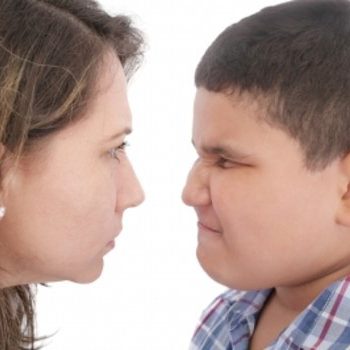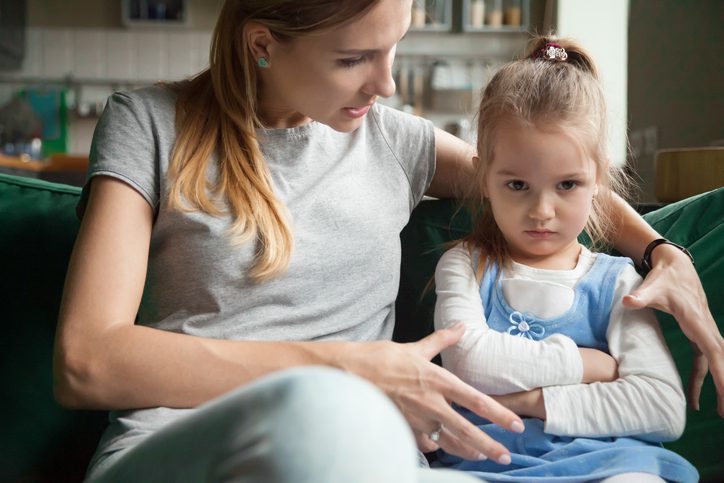This article originally appeared in Macaroni Kid on January 9th, 2020 by Luanne Starr Rhoades, LCPC, LADC, CCS; Health Affiliates Maine
Question: I am a single mom to two kids. My oldest son is 16 and taller, bigger, and stronger than me. He has recently switched from sulky teen to angry teen and twice has grabbed me to the point of it being painful. I’m worried about this escalating into more and it prevents me from bringing things up with him as I am fearful of making him angry. As far as I know he has never been exposed to abuse. His dad was not abusive and I don’t know where this anger comes from. He always apologizes after but I need some ideas to talk to him about the seriousness of what he is doing without making it worse. Thank you.
Answer: This is a tough situation, and one that I feel needs immediate intervention to help your son, and to protect you. You said that your son “recently switched” from being a “sulky teen to an angry teen.” Switches in personality, like you describe, usually have a precipitating event, or circumstance. It could be something going on with him physically, of which he has no control, or his emotions may be rooted in abuse, bullying, or fear. In our culture, anger is often easier for us to express, rather than the true emotion lying underneath. That is why talking with a professional, like a counselor, can help get to the root of the problem and find new ways of coping.
Adolescent depression is also a possibility to be explored; it can present as profound irritability and a shorter fuse. Your PCP can screen for depressive disorders for which treatment might be helpful.
Substance abuse must also be considered. Many teens experiment and some can have reactions, even allergic reactions, which seem to change their personalities, leaving parents wondering what happened to their child. This is serious and needs to be addressed early. If you don’t feel confident about this, seek parenting help and call your PCP.
Teens have a lot going on not only in physical growth and the demands of school, but also with adulthood looming in the future. This may lead to anxiety. Psychologically, they are doing a push-pull with parents, both pushing you away because they think they are adults while pulling you close for fear of growing up. This is part of normal development. Your son’s school most likely has a counselor whom he could see, or may have a recommendation. Health Affiliates Maine can connect him with a counselor, as can other agencies.
If his father is deceased or absent from his life, your son could benefit from male mentoring. Perhaps there are family members or family friends who might be able to take on that role. There are other organizations like Big Brothers Big Sisters, New Beginnings, and Advocates for Children that might have resources which are helpful.
Here are some things you can do that may be helpful:
- Connect with his school and see if they have noticed any changes in him or can provide you with information.
- When you feel it is safe to do this, talk with your son when he is calm, and see if he has any insight into what if troubling him. It’s reasonable to say to him that you both need to work together with a family therapist to learn how to communicate in a safe and healthy manner, and likely both parties need some help in this area. Open communication is the best plan, even when it is difficult and even when you are upset and angry, too. It is best for him to know where you stand and what your limits are.
- Take him to see his primary care provider (PCP). Let the PCP know what you are experiencing with him.
- Your own safety also needs to be considered. If you are truly afraid he will hurt you or your other child, you may have to call 911 for help. At your son’s age, this will most likely lead to other interventions which could help him. He will be angry at you, but later understand.
- Talk with your other child who may also feel afraid of their brother, yet fearful for him. When brother is angry, it can be an emotional and scary scene for the younger sibling, check in with them often about feelings and safety.
Right now your son needs you, even though he is pushing you away. He desperately needs to find another way of expressing his emotions, and you and your other child need to be safe. This is a very tough time for a parent. Don’t hesitate to get help.
Luanne Starr Rhoades, LCPC, LADC, CCS is a professional counselor and the Outpatient Therapy Director at Health Affiliates Maine, a mental health and substance abuse treatment agency serving adults, adolescents, children and families. For more information or if you or someone you know needs help, call us at 877-888-4304 or visit our website healthaffiliatesmaine.com and click on “Referrals.”




